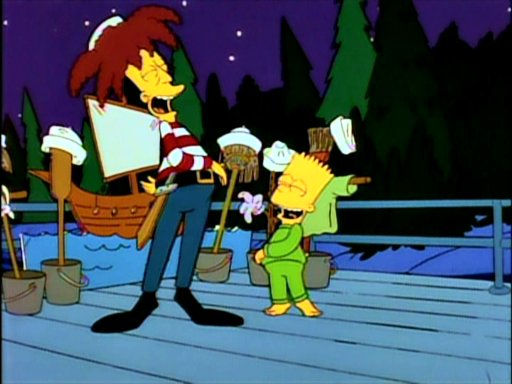Fleabag: The Anti-Rom Com
- Oct 19, 2021
- 4 min read
Updated: Oct 20, 2021

by Maddy Mason
Ryan Gosling holds Rachel McAdams up in the pouring rain. Leo and Kate look longingly off to the side as their giant faces flank the RMS Titanic. Jennifer Garner skips in front of an outline of New York city, wearing a little slip and trenchcoat.
The Rom-Com ranks pretty low for me on my list of favorite movie genres. There’s always a few exceptions (Bridget Jones’ Diary, Clueless…), but I never have a burning desire to see the same thin, white woman and her co-star act out a cliched script. The story is predictable and boring, and there is no catharsis at the end. Even romances in plays are hard to enjoy. Romantic sideplots are too pretty and put together to be compelling. When the female of the relationship is somewhat interesting (a la Eponine in Les Miserables), she is killed off or goes crazy.
There are no plays with messy, dirty relationships. I’m not talking about 50 Shades of Grey dirty. I’m talking about fluids everywhere, dingy bedrooms, fumbling hands, and old condoms. We want to see romance and love, but we don’t want to see sex.
Enter Fleabag.
Fleabag is a one woman show written by and starring Phoebe Waller-Bridge. It premiered at the 2013 Edinburgh Fringe Festival, then transferred to the West End. It’s now a raved-about television series on Amazon. Set in modern day London, we follow the titular character (yes, her name is Fleabag) as she navigates sex, family drama, and “fucking her cafe into liquidation”. immerses you into Fleabag’s world, not shying away from foul language and the grittiness of her life. The audience becomes her confidante, and you start to feel for this self-described “morally bankrupt woman who can’t even call herself a feminist”. We want Fleabag to see that she is worthy of intimacy, love, and respect. She sees herself as a villain, we see her as a tragic heroine.
The language of the play is very reminiscent of the “in-yer-face” theatre movement of the 1990s. Coined by Simon Grey in his play Japes, he writes:
“[They] meant “I’ve fucked you and now I need to fuck you again, and possibly a few more times after that and I’ll be jealous, insane with jealousy if anyone else fucks you” …. All [they] do is fuck each other and all they talk about is how they do it, and who they’d really rather be doing it with or to—and they don’t cloak it in their language …. No words that even hint at inner lives, no friendships except as opportunities for sexual competition and betrayal…And you know—you know the worst thing—the worst thing is that they speak grammatically. They construct sentences….So that the verbs and nouns stick out—in your face. In your face. That’s the phrase, isn’t it? That’s the phrase! In your face!”
Fleabag talks in great detail of her sexual encounters and daily life. Fucking, to put it bluntly, is so important to her. It’s her means of control in an uncontrollable world. The words “fuck” and “shit” fly around like conjunctions, and they enrich so much about the carefree nature of the script. Waller-Bridge has written a character that exudes a wonderful masculine energy that is rarely seen in female characters today. Fleabag eats stuffed crust pizza. Fleabag likes hentai and gangbang porn. Fleabag breaks boundaries set in media of how we perceive women and their sexuality.
Look at any romantic comedy and the female lead is put together, clean, sharp, post-intercourse the sheets are neatly tucked on top of her breasts. God forbid we show fat to the masses. Sex in Fleabag is always aggressive, borderline violent, and it’s messy. Fleabag calls up an old friend, and when he asks her to participate in anal sex, she spends the rest of the day wondering, “Do I have a massive arsehole?”. Her brash and truthful perspective on sex and love makes her a more sympathetic character. We can forgive her when she messes up because we see ourselves in her.
In an interview for the Edinburgh Fringe Festival, Waller-Bridge stated that the play came about by writing scenes that would make her collaborator (Vicky Jones, director of the piece) laugh. The story emerged from comical, frank, “in-yer-face” monologues that went in unexpected directions. By starting from a place of humor, a great sense of love resonated through the play. This love makes us love Fleabag, and her flawed self. Yes, she isn’t the best person. But, because she is telling the messy truth about love and relationships, she gains our sympathy. We want her to succeed. With our sympathy towards her, she suddenly ranks among the likes of Oedipus and Hamlet as tragic heroes.
So, readers, do yourself a favor. Pick up Fleabag. I got mine on Amazon. Or, tune into the wonderfully crafted TV series on Amazon Prime. It truly captures the essence of Fleabag’s tumultuous life, not betraying the love and fuck-ups she puts into the world. The play is a great reminder of how striving for acceptance in today’s society is an enormous challenge we are facing together.
Let’s find love with Fleabag.





Comments